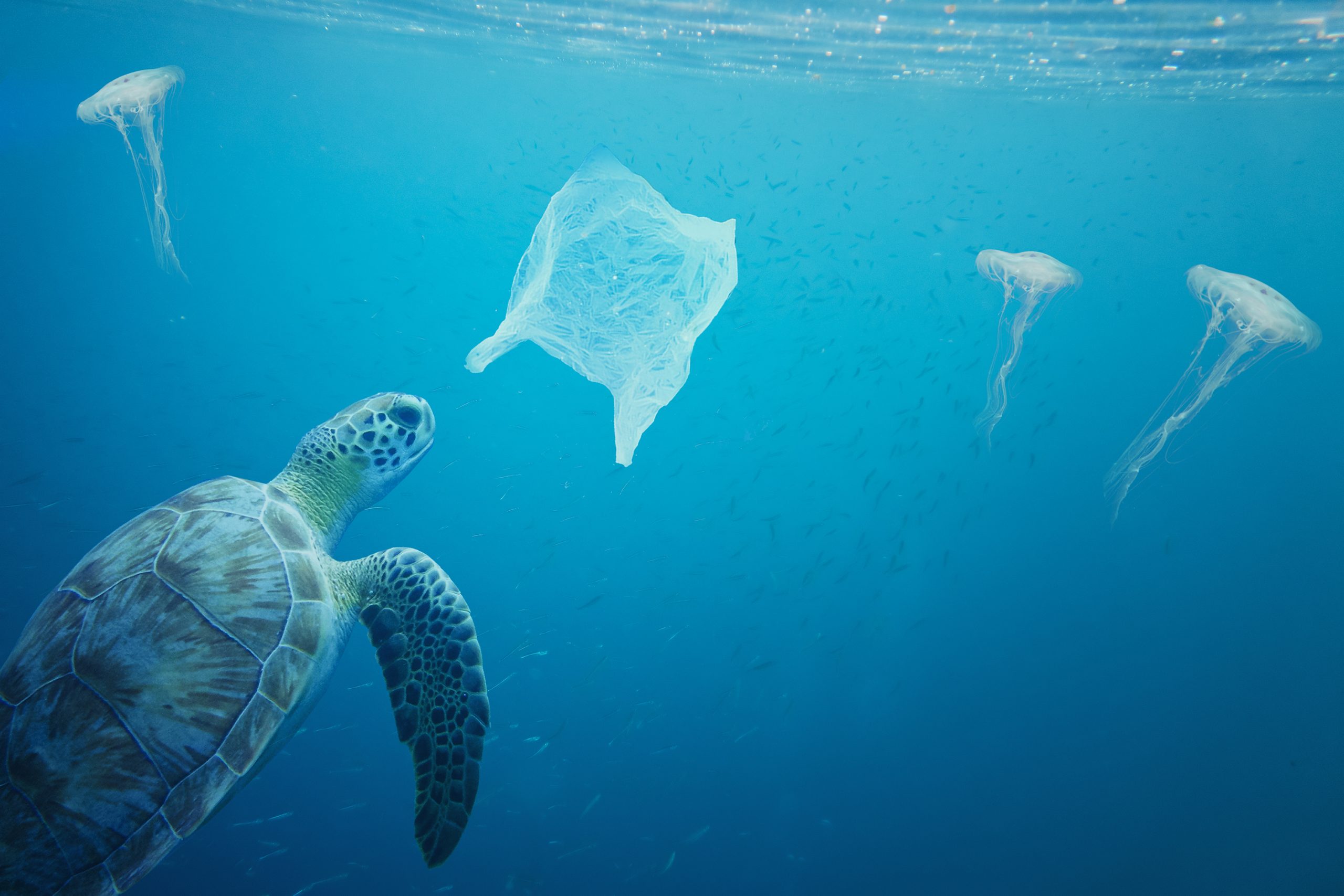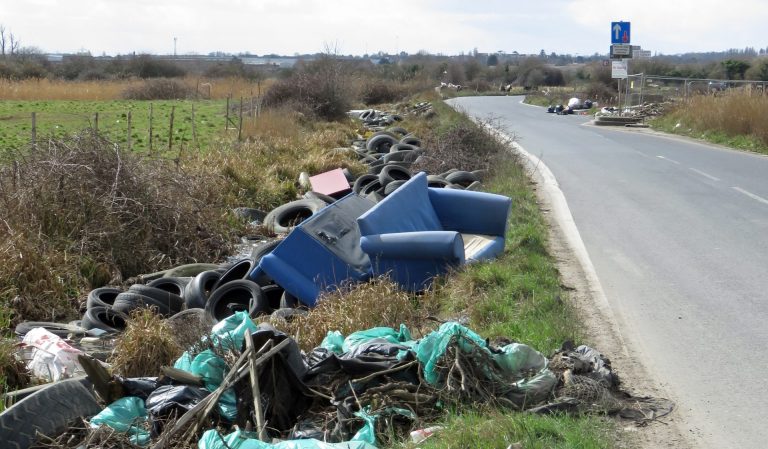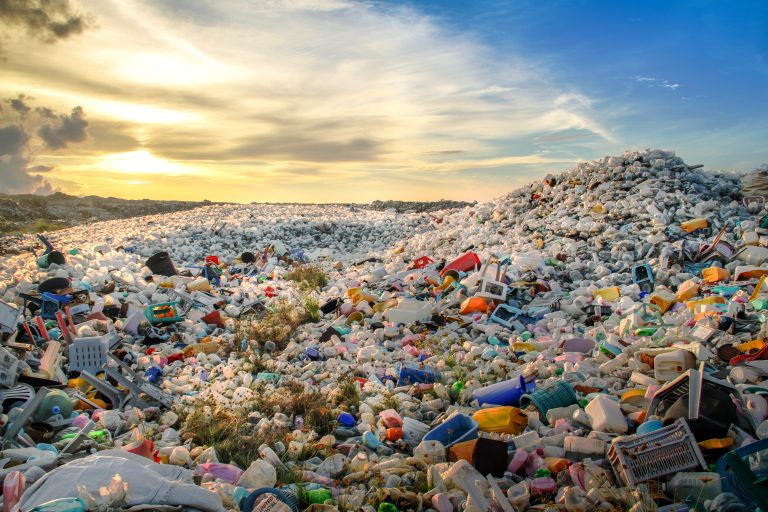Every June 8th, World Oceans Day reminds us of the critical role our oceans play in sustaining life on Earth. Covering over 70% of our planet’s surface, oceans regulate climate, provide food security, support biodiversity, and generate the oxygen we breathe. At Evolve Waste Solutions, we recognise that protecting our oceans begins far from the shoreline – it starts with how we manage waste in our communities, businesses, and daily lives.
Why World Oceans Day Matters
World Oceans Day, officially recognized by the UN in 2008, celebrates the beauty and importance of oceans while highlighting challenges like pollution, overfishing, climate change and habitat destruction. The 2025 theme, “Revitalization: Collective Action for the Ocean,” emphasises the need for collective efforts to restore ocean health. In the UK, oceans face pressures such as plastic pollution and overfishing, but there is a growing movement, with various organisations, communities and government bodies, working together to protect and restore marine ecosystems for a sustainable future.
How the UK Celebrates World Oceans Day
On World Oceans Day, various activities take place across the UK to raise awareness, educate the public and encourage ocean conservation.
- Beach Clean-Ups and Coastal Activities
World Oceans Day offers a great opportunity for people in the UK to give back by participating in beach clean-up events. Organisations like Surfers Against Sewage, Keep Britain Tidy and The Marine Conservation Society often organise local clean-ups to remove plastic waste and litter from beaches. Joining or organising a beach clean-up is a simple yet effective way to protect marine life.

- Educational Events and Talks
On World Oceans Day, many environmental charities, universities and museums in the UK host educational events to raise awareness about ocean health. These events cover topics like sustainable fisheries, marine biodiversity and plastic pollution, inspiring individuals to take action. The Natural History Museum in London and The Scottish Association for Marine Science are among the venues that may host activities on this day.
- Supporting Marine Conservation Charities
World Oceans Day is an excellent time to support marine conservation organisations like The Marine Conservation Society, Surfers Against Sewage and Plastic Oceans UK. These charities are crucial in raising awareness, advocating for policy change and conducting research to protect marine environments. You can support them by donating, volunteering or spreading the word about their efforts.
- Sustainable Seafood Choices
Overfishing is a critical issue for marine ecosystems in the UK. On World Oceans Day, individuals can help by making sustainable seafood choices, such as selecting products certified by the Marine Stewardship Council (MSC) or Aquaculture Stewardship Council (ASC). These labels indicate seafood that is responsibly sourced, helping to protect marine environments and reduce the demand for overexploited fish stocks.
- Art and Awareness Campaigns
Art is a powerful way to raise awareness, and World Oceans Day inspires artists to create ocean-themed projects that highlight the beauty and vulnerability of marine life. Through photography, painting or sculpture, these works encourage people to reflect on their relationship with the ocean and the need for conservation. Look out for ocean-related exhibitions and public art installations at places like The Tate Modern or local galleries.
Small Changes You Can Make to Protect Our Oceans
While it’s important to take collective action, every individual has the power to make a positive impact on the health of our oceans. Here are a few simple but effective ways to help protect our seas:
- Reduce Plastic Waste
Plastic pollution is a major threat to oceans, with millions of tonnes of plastic waste entering UK waters each year, harming marine life. On World Oceans Day, reduce your plastic usage by switching to reusable bags, bottles and containers, choosing products with minimal plastic packaging and recycling plastic correctly.

- Choose Sustainable Seafood
Overfishing and unsustainable fishing practices have depleted fish populations and harmed ocean habitats. To help, choose sustainably sourced seafood or plant-based alternatives to reduce pressure on marine life. Supporting businesses with sustainable fishing practices helps ensure the health of our oceans for future generations.
- Support Marine Protected Areas
The UK has established several marine protected areas (MPAs) to safeguard important marine habitats and species. These areas are crucial for maintaining biodiversity and ensuring that our oceans can regenerate. Support efforts to expand MPAs by getting involved in advocacy campaigns and learning more about their importance.
- Be Mindful of What Goes Down the Drain
Pollution from land-based sources, like chemicals and detergents, can reach the ocean through stormwater runoff. To help, use eco-friendly, biodegradable products at home and avoid pouring chemicals, oils or household products down the drain, as they can end up in rivers and the ocean.
- Advocate for Ocean Protection Policies
Support ocean protection efforts by backing policies that reduce pollution, protect marine life and tackle climate change. In the UK, organisations like The Blue Marine Foundation and The Wildlife Trusts work to influence government policies. You can help by signing petitions, contacting local MPs and participating in campaigns advocating for stronger ocean conservation measures.
World Oceans Day reminds us of the importance of protecting our oceans to sustain life on Earth. In the UK, while surrounded by the sea, challenges like pollution, overfishing and climate change impact marine environments. This World Oceans Day, take action by learning about ocean health, supporting conservation efforts and making sustainable choices. Every small effort helps ensure a healthy, thriving ocean for future generations.
Let’s celebrate and protect our oceans because a healthy ocean means a healthy planet. 🌊💙














